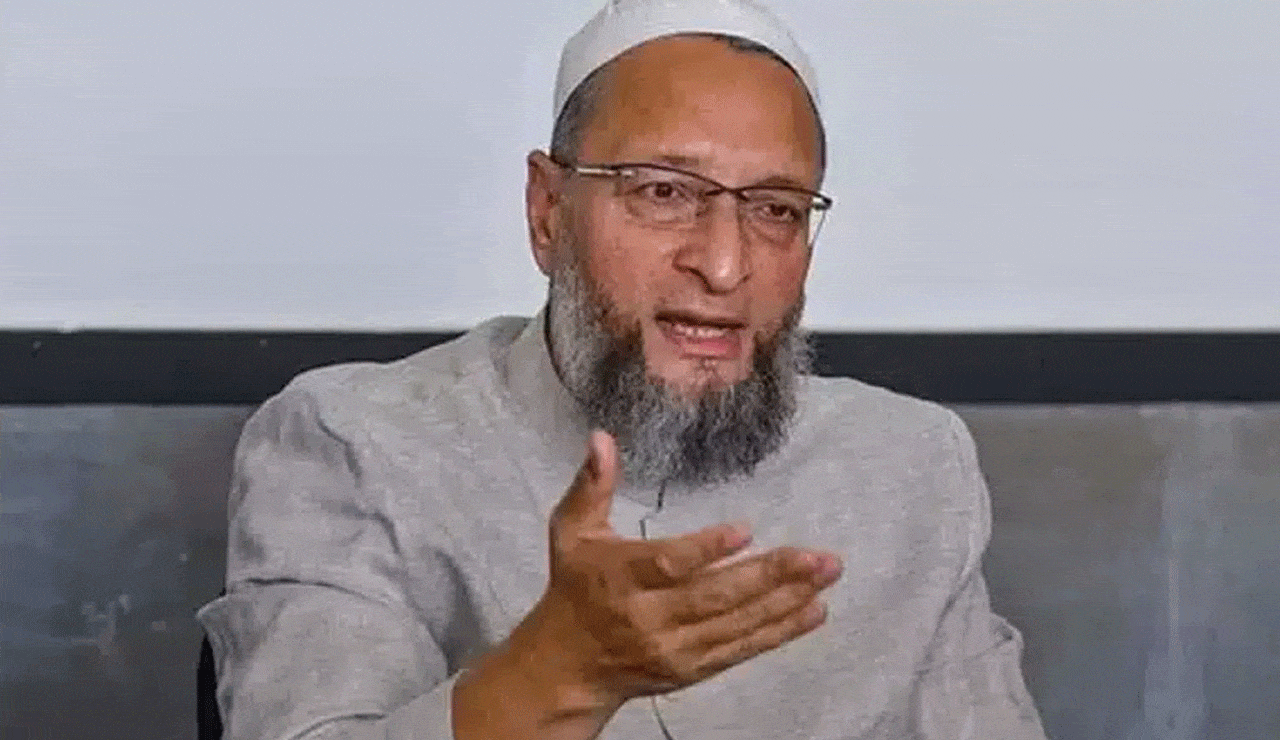“Ask If Medina Is Built on Waqf Land”: Owaisi Jabs PM Modi Ahead of Saudi Visit
AIMIM President and Hyderabad MP Asaduddin Owaisi took a direct swipe at Prime Minister Narendra Modi on Tuesday, criticizing the new Waqf law and drawing attention to the PM’s upcoming visit to Saudi Arabia.

New Delhi: AIMIM President and Hyderabad MP Asaduddin Owaisi took a direct swipe at Prime Minister Narendra Modi on Tuesday, criticizing the new Waqf law and drawing attention to the PM’s upcoming visit to Saudi Arabia. Addressing an anti-Waqf law gathering at Delhi’s Talkatora Stadium, Owaisi challenged BJP’s stance on the issue and mocked Modi’s foreign diplomacy.
Table of Contents
Owaisi: “Ask Saudi Crown Prince If Medina Is Built on Waqf Land”
Owaisi ridiculed PM Modi’s diplomatic style by saying:
“PM Modi is visiting Saudi Arabia, where he will meet Crown Prince Mohammed bin Salman, warmly exchanging greetings like ‘Ya-Habibi, Ya-Habibi.’ Upon returning to India, he will urge the people to identify Muslims by their clothing.”
He then urged Modi to ask the Crown Prince whether Medina is built on Waqf land, asserting that Waqf is a common institution in all Muslim-majority countries, regardless of their governance system — be it a monarchy or a democracy.
Also Read: Indian Banks Get Until April 2026 to Implement New LCR Framework
Owaisi Rebuts BJP’s Claims on Waqf System in Muslim Nations
Countering the BJP’s remarks in Parliament that some Muslim countries don’t have Waqf systems, Owaisi called it a “lie”, reiterating that Waqf exists globally, including in Saudi Arabia. He used this to question the intent behind the Waqf-related reforms introduced by the BJP-led central government.
On Judiciary vs. Parliament: “If You Make Wrong Laws, Judiciary Will Intervene”
Owaisi also commented on the ongoing separation of powers debate, particularly in light of Vice President Jagdeep Dhankar’s statement that “Parliament is supreme.” He emphasized that while Parliament holds a critical role, judicial review is essential to uphold constitutional values.
“Parliament is definitely supreme and independent. But the judiciary and executive are also independent. This is why the theory of separation of powers is part of the basic structure of our Constitution,” Owaisi said.
Owaisi Defends Judiciary’s Role in Democratic Checks and Balances
Backing the judiciary’s authority, Owaisi remarked that if the government misuses its powers or passes unconstitutional laws, then the judiciary has every right to intervene. He cited the 2013 Waqf Bill, which was passed unanimously, as a case where Parliament had acted with consensus but warned against misuse under current reforms.
